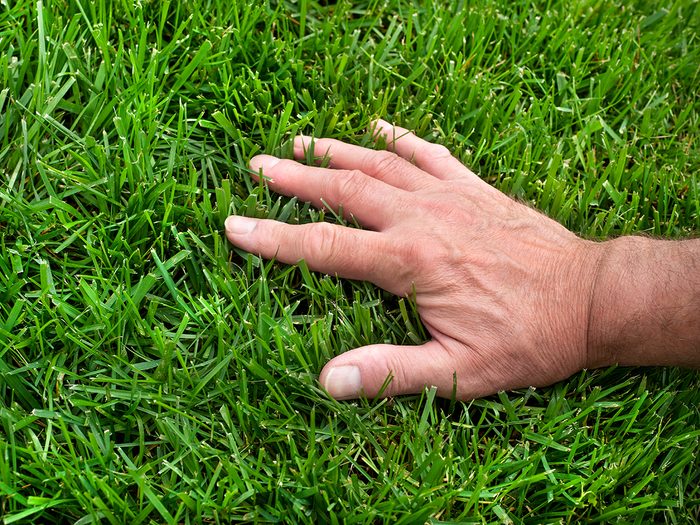
Know Your Soil
Having your yard’s soil tested can help you determine your soil’s pH level, the right seed for your lawn and the best way to deal with weeds. Weeds are indicators of soil conditions, according to Organic Plant Care, LLC, a full-service lawn care company in New Jersey.
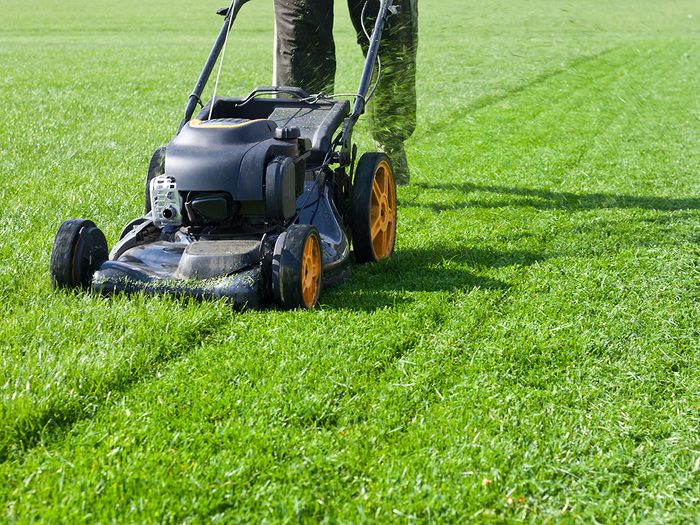
Only Mow When Necessary
When it comes to mowing, make sure your lawnmower’s blade is sharp and only mow when needed. That’s because once the weather heats up, your grass may go dormant and require little to no mowing at all. When you do mow, don’t cut it too short, and make sure you mow during the cooler hours, later in the day.
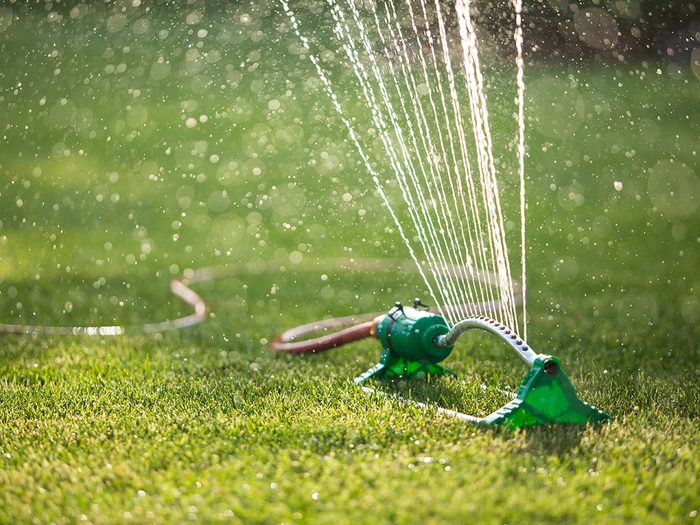
Be Smart About Watering
For eco-friendly lawn care to work, you’ve got to do certain tasks at certain times, and that includes watering. Briggs and Stratton, maker of power lawn tools, notes you should only water early in the day, preferably before 9 a.m. Start with a target of just one inch (2.5 cm) per week, but make adjustments depending on your area’s rainfall.
These clever yard tool hacks will make your life so much easier!
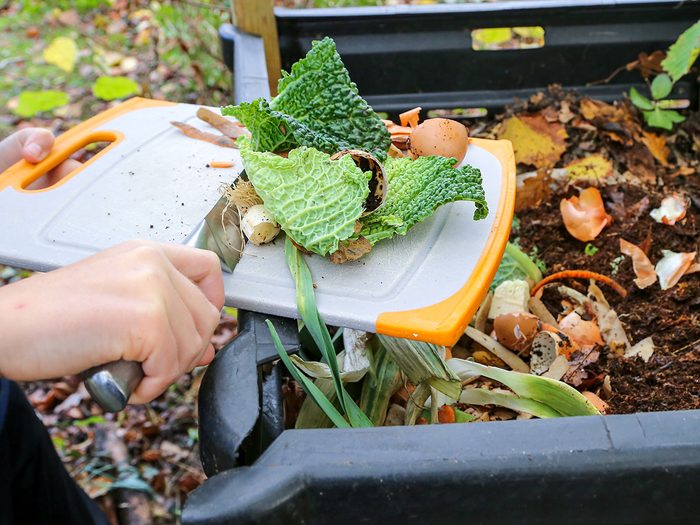
Fertilize with Compost
Go for a natural fertilizer—compost! “Compost is about as natural as you can get. It enhances soil by aiding the growth of useful microbes, neutralizing soil pH and supplying nutrients such as nitrogen and phosphorus,” according to True Value. “When the pile has a dark brown, moist and earthy consistency and smell, it is ready for use. The compost particles should be fine or small and grainy in order to be spread on your lawn.”
Don’t miss these pro tips on how to grow a vegetable garden absolutely anywhere.
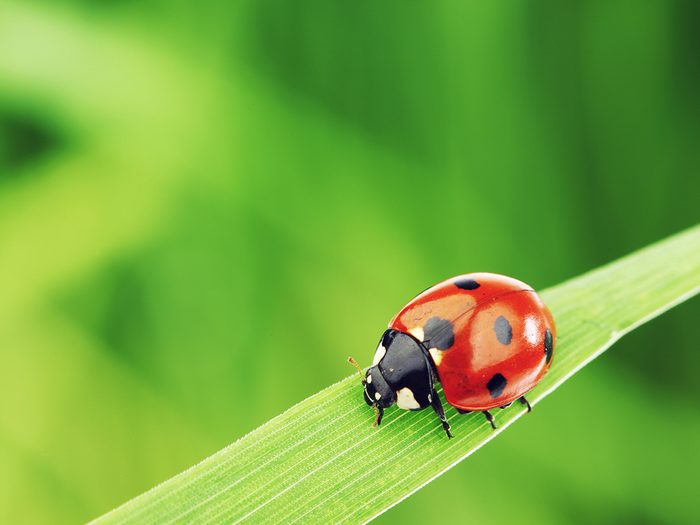
Don’t Fear Bugs
Bugs can be beneficial to your lawn, according to Organic Plant Care, LLC. “Most insects are beneficial—in fact, only about two percent are usually pests,” the company notes. “In tolerable numbers, they serve as food to lure beneficial insects, birds and other predators into your landscape.”
Find out which plants will attract butteflies and birds to your yard this summer.
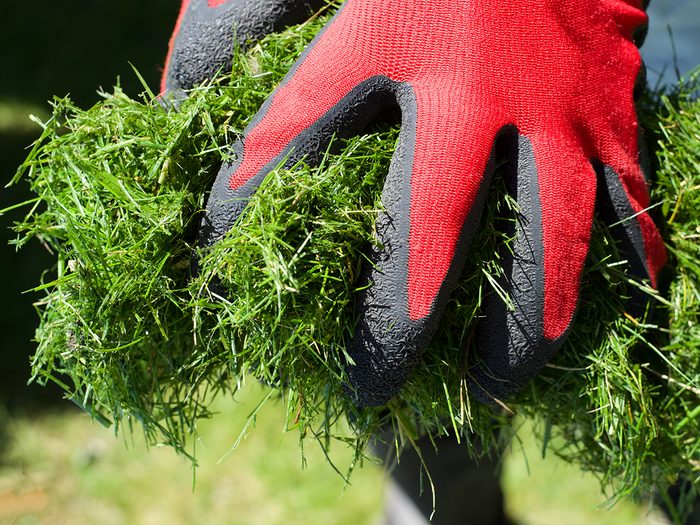
Leave Glass Clippings Behind
It’s best to leave your grass clippings on the lawn, according to Natural Lawn of America and many other eco-friendly lawn care experts. That’s because clippings are a good source of nutrients for your lawn. The nutrients will seep down into the ground and act as a natural fertilizer. Don’t let the grass get too long, though: Long clippings will take more time to break down and can choke out the grass growing underneath.
Here’s what you need to know about lawn mower oil.
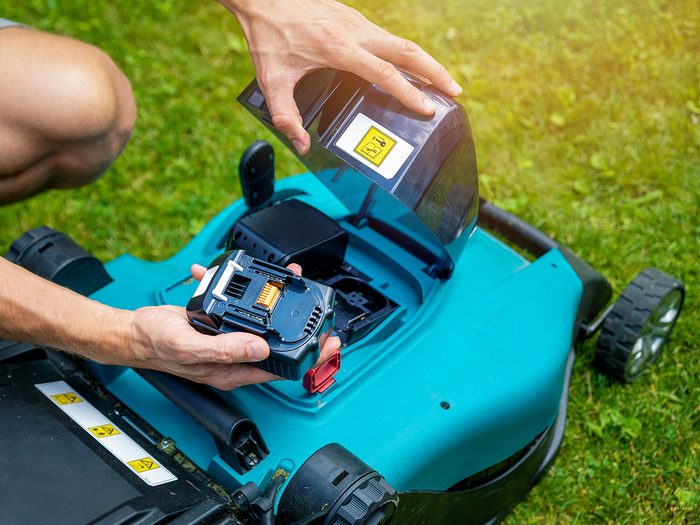
Try an Electric, Battery-Powered or Manual Mower
If you’re serious about organic lawn care, consider replacing your gas-powered lawn mower to cut back on fossil fuel use. “Gas-powered tools consume fuel and can contaminate soil or water due to spills,” notes True Value.
Next, discover a genius hack to patch lawn gaps.